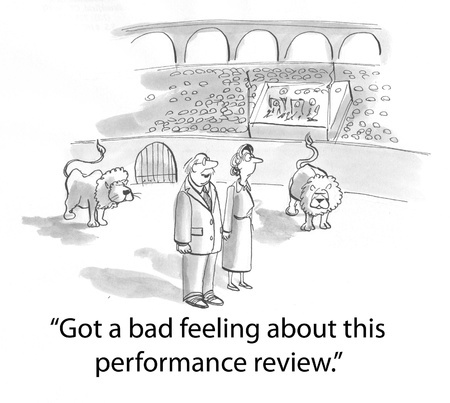Managing Employee Performance – Assessing Performance – Summary

This blog is part of a series of blogs focusing on the topic of “Managing Employee Performance”. Managing employee performance in the workplace is comprised of all of the interactions and activities that take place between an employer and an employee. These interactions and activities result in the achievement of goals and expectations. More importantly, they result in employee success and organizational success.
The previous three blogs overviewed the importance of ongoing conversations. They also outlined an approach to take when providing feedback. This feeback focuses on “landing” the message vs. just “sending the message”. Leaders, managers, supervisors, team leads and anyone else who oversees or manages the work of others need to commit to providing meaningful and helpful feedback on a regular basis that is authentic and clear. This blog will summarize the key concepts that must be employed to effectively manage the assessment and feedback stage of the process of managing employee performance.
The Fundamental Purpose of Feedback
There are two basic reasons that managers assess and discuss with an employee the actions/behaviours or outcomes that the employees demonstrate relating to the job performance that was expected. The feedback (a better word would be performance conversation because it should be a two-way dialogue) is given to:
- Reinforce a desired action/behaviour/outcome so the employee will know to do it again; or
- Correct an undesired action/behaviour/outcome.
Actions/behaviours/outcomes that are considered “desirable” is based on an expectation setting process. This process outlines what the organization wants from the employee and how they partner to give the employee value in return. Ideally, the performance leads to success for both the organization and the employee. Times are changing. The idea that employee performance is only about the organization is gone or is soon to go. So, with mutual success in mind, we engage in conversation to reinforce and correct action/behaviour/outcome that needs to be modified or changed.
Key Principles
Research has demonstrated that conversations focused on sharing insights into the employee’s progress should be prioritized. It should no longer be considered by managers as something to get to “when I have time” or ”when I’m finished my real work”. Managers should share with employees what they do and don’t do well. There should be regular conversations (progress updates) with a focus on actions/behaviours/outcomes that have a significant impact on organizational success and/or employee success. Every conversation should focus on ensuring that the employee understands the message and the choices that they have to respond to the situation. The manager’s mindset needs to be on “landing” the message, not just “sending” the message.
Framework for the Conversation
Managers can employ a process that FEEDs the employee. This is part of ensuring that the message “lands” and that organizational and employee success is achieved. A little bit of forethought using a four-step process, will dramatically increase the effectiveness of the conversation. FEED stands for:
1 – Facts, Focus and Framing – What happened, what message should “land” & what context is important
2 – Expectations – How what happened compares to what was expected.
3 – Effect – What impact did the action/behaviour/outcome have on the employee and or organization
4 – Dialogue – What is the other person’s perspective
Managers who consider the purpose of feedback, embrace the key principles and employ the FEED framework will undoubtedly see greater success. This success will benefit the employee, the team, the organization and their own leadership. In the next blog, we will tackle how to have a difficult conversation in situations involving disagreement or conflict.
As always, I welcome your comments and feedback. You can connect with me via email or telephone or leave a comment right here on the site.
Until next time,
Dave
David Town, CHRL, ACC is a facilitator and coach of leadership and management principles that enable individuals and organizations to build greater leadership competency, resulting in higher performance and higher employee engagement. David has a particular focus on effectively managing conversations involving confrontation or conflict. As well, he provides insights and assessment strategies for integrating character competencies into leadership skills resulting in increased trust and reduced risk for leaders. David is a member of the International Coaching Federation and is President of Your Leadership Matters Inc.






Leave a Reply
Want to join the discussion?Feel free to contribute!